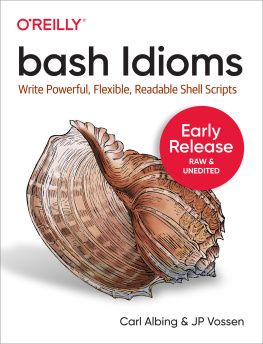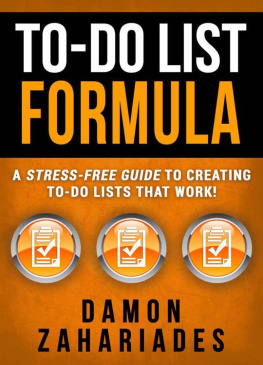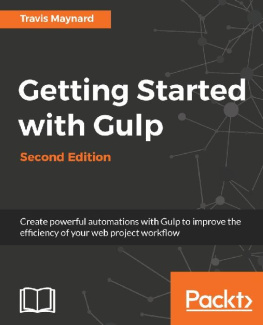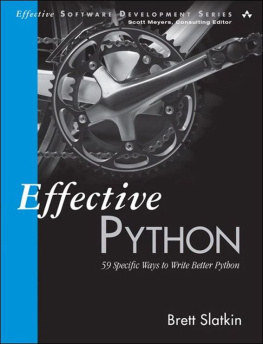The Power of The To-Do List
How to Achieve Your Goals Faster
By Alexander Tait
The Power of The To-Do List Copyright by A. Tait, 2017
All rights reserved.
No part of this book may be reproduced in any form without permission from the author.
First Published, May 2017.
Disclaimer
Without limiting the rights under copyright reserved above, no part of this publication may be reproduced, stored in or introduced into a retrieval system, or transmitted, in any form, or by any means (electronic, mechanical, photocopying, recording, or otherwise), without the prior written permission of the copyright owner and author.
The scanning, uploading, and distribution of this book via the Internet or any other means without the permission of the publisher and copyright holder is illegal and punishable by law. Please purchase only authorized electronic editions, and do not participate in or encourage electronic piracy of copyrighted materials. Your support of the authors rights is appreciated.
While all attempts have been made to verify the information provided in this publication, neither the author nor the publisher assumes any responsibility for errors, omissions, or contrary interpretations of the subject matter herein.
This book is for entertainment purposes only. The views expressed are those of the author alone, and should not be taken as expert instruction or commands. The reader is responsible for his or her own actions.
Adherence to all applicable laws and regulations, including international, federal, state, and local governing professional licensing, business practices, advertising, and all other aspects of doing business in the US, Canada or any other jurisdiction is the sole responsibility of the purchaser or reader.
Neither the author nor the publisher assumes any responsibility or liability whatsoever on behalf of the purchaser or reader of these materials.
Any perceived slight of any individual or organization is purely unintentional.
ISBN: 978-0-473-39304-5
Table of Contents
Introduction
Writing daily to-do lists is essentially planning your life at the most granular level. Most people write some form of a to-do list, but few take the time to plan their time properly and to analyze their productivity. In this book, I will show you a method of writing effective to-do lists that will enable you to achieve your goals. I believe how we write our to-do lists is a large determinant when it comes to success in reaching our goals. It is true that there are many successful and highly productive people who do not write to-do lists. However, for the majority of us mere mortals, writing goals and to-do lists provides the necessary structure for success. Many successful people do in fact write to-do lists, including Sir Richard Branson . So, if its good enough for him, then its good enough for the rest of us.
Many of us are overwhelmed by the number of the things we want to get done and find it difficult to prioritize tasks. Each day we have a countless number of things to do or things we know we should be doing. We also have personal goals we want to achieve. Most peoples to-do lists usually contain a mixture of tasks that relate to several areas of their lives. Often, we end up feeling with each passing day that we are no closer to achieving our goals. The good news is that to-do lists can serve more than just a reminder to complete daily tasks. When well-written, they can lead to a more productive use of time and quicker achievement of long-term goals.
Goal Setting
Even though this book is about how to write effective to-do lists, that is not our starting point. Instead, the first step to writing more effective to-do lists is to step back for a minute and figure out what your goals are. Write down what are the goals you are trying to achieve in the long-term. Setting goals is a crucial step to take because it will be your goals which will guide what is important on your to-do lists.
Clarifying what your end goals are and working backward from the end-point provides a couple of important benefits. First, it helps you see the big picture and gives you a clear idea of what you are trying to achieve. The second benefit is that it allows you to identify which of your to-do list tasks are goal-oriented tasks and which are maintenance tasks.
Goal-oriented tasks are tasks which are directly related to a goal you are trying to achieve, whereas maintenance tasks are simply things you need to get done in order to maintain your current standard of living. For example, paying the bills on time and cleaning the house are likely to be maintenance tasks. On the other hand, learning a new skill or saving money to buy a house could be examples of goal-oriented tasks.
One persons maintenance task might be another persons goal-oriented task and vice versa. It all depends on what your individual goals are. For instance, you might already be content with your current level of fitness and therefore going to the gym might be a maintenance task for you whereas someone else might have a goal to lose a certain amount of weight. Therefore, in the latter case, the task of going to the gym would be a goal-oriented task.
How to Set Goals
It should go without saying that writing your goals down rather than simply having it all in your head is a good idea. Many self-help books quote a study by Harvard Business School which found that only 3% of MBA graduates had written down their goals. Remarkably, 20 years later that 3% were earning, on average, ten times more than their college peers who did not write down their goals. Great story, the only problem is that the study never took place and is an urban myth.
However, this is not to say that there is no evidence for the benefits of writing down your goals. In one study by researchers at Californias Dominican University, it was found that study participants who wrote down their goals achieved more than the participants who were simply asked to think about their goals .
In this section, Ill provide you with the basics of how to set your own goals, in particular:
- How to set specific hard goals
- Make sure your goals are realistic
- Get feedback before starting on a goal
- Determine your commitment level to the goal
- Determine the reason(s) why the goal is important to you
- Decide what measures you will use to track your progress
- Putting goals into a time frame
Specific Goals
Writing goals such as get fit or earn more money simply wont cut it. They are too general to be of any use. If you want to translate goals into action, then your goals must be specific. Goals which are too vague typically never eventuate to anything.
The process of writing specific goals involves clearly defining the outcomes you want to achieve. For example, the goal of lose weight can be made specific by writing something like lose 2 inches from the waistline by committing to an exercise and healthy eating program for the next 90 days. This is now a specific goal as it includes both how one plans to achieve the goal as well as quantifying the desired outcome.
In addition to making goals specific, there is at least some research showing that setting challenging (hard) goals result in increased performance . In other words, by setting yourself difficult goals, you are more likely to rise to the occasion and increase task performance. However, there are some exceptions to this which are worth keeping in mind. If the goal is unrealistic, conflicts with other goals, or you are not fully committed to it; then this is not going to work.
Realistic Goals
Before embarking on a goal, it is vital to ensure that the goal is realistic. Ask yourself, What are my chances of achieving this goal? and How much will I benefit from achieving this goal?. These two questions relate to what psychologists refer to as Expectancy Value theory. This theory basically says that a persons level of motivation to complete a task is a function of their perceived likelihood of success and the perceived benefits they will derive from doing so. In other words, if you believe you can achieve a goal then you will be more motivated and therefore more likely to achieve it. However, if the goal is unrealistic, then no amount self-belief is going to work. If these cases, time and effort will be wasted on trying to achieve an unattainable goal. One of the best ways of determining if a goal you want to pursue is realistic is to get feedback from someone who has achieved the same goal. There is no substitute for getting feedback from someone who has been there, done that. For example, if your goal is to save money for a house, then talk to someone who did save and buy a house. Ask them not only how they achieved the goal, but what challenges they faced along the way. Ideally, talk to someone who achieved a goal from the same starting point of where you are now. There is no point getting advice from someone about saving for a house deposit if they bought their house with the help of a large inheritance.










